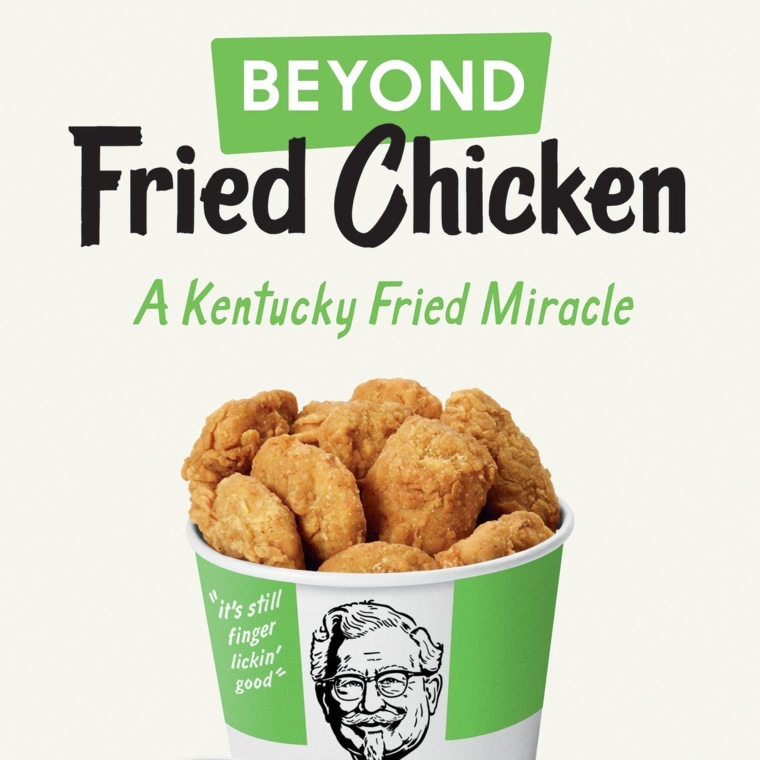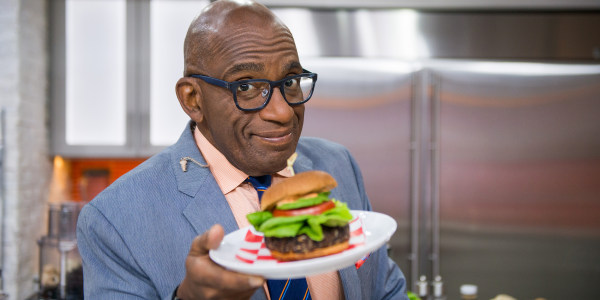From grocery stores, to high-end restaurants and even fast-food menus, plant-based proteins are popping up everywhere these days. While many of these products were initially celebrated for providing alternative sources of protein to those who cannot, or choose not to, eat animals, these products are now facing increasing scrutiny from a variety of critics.
Popular brands like Beyond Meat and Impossible have actually been around for years (2009 and 2011, respectively), but now they've officially gone mainstream in 2019, with national chains like Qdoba, McDonald's, Burger King and even KFC jumping on the bandwagon.
As these products become more ubiquitous, it's not surprising that people who are not on board with the trend — including the CEO of Whole Foods and the CEO of Chipotle — have gotten more vocal about why so-called fake meats may not be so deserving of so much praise.
Here's what consumers need to know about the criticism against this wildly popular new food.
It's not that much healthier than real meat
Many people assume that a vegetarian product is chock full of vegetables, has fewer calories and less fat, but that's definitely not always the case. When it comes to evaluating the relative health of a product, most nutritionists look past the buzzwords and take the time to thoroughly examine labels.
"If you're ditching meat for health reasons, don't be fooled by thinking any of these fake meat burgers are going to unclog your arteries or resemble what is often referred to as 'clean eating,'" Bonnie Taub-Dix, RDN, nutritionist and author of "Read it Before You Eat it - Taking You from Label to Table," told TODAY. Taub-Dix points out that many of these products actually have more saturated fat and sodium than animal proteins like lean beef or turkey.
For example, a Burger King Whopper patty has 240 calories, 18 grams of fat, 230 milligrams of sodium and 20 grams of protein. A Beyond Meat Burger patty has 250 calories, 18 grams of fat, 390 milligrams of sodium and 20 grams of protein. The Impossible Burger patty has 14 grams of fat and 19 grams of protein. It does, however, have 240 calories and 370 milligrams of sodium.
"If you don't eat meat or you'd like a break from meat, one of these meatless burgers could satisfy your tastebuds," Taub-Dix, who enjoys eating Impossible burger patties with arugula salad and quinoa, said. "I think they have their place as an occasional meal. But if you plan on eating one every night, I'd rethink your menu."
Her recommendation for everyday eating is to make your own veggie patties at home using a medley of protein-rich beans and veggies. Or, if you don't have time, consider a freezer-aisle brand like Dr. Praeger's. Its best-selling veggie burger has carrots, onions and string beans listed as its first three ingredients.
They're not always vegan
Serious vegetarians and vegans have been made aware that food prepared in commercial kitchens may likely come into contact with animal products unless the restaurant keeps strict prepping boundaries. Burger King's new Impossible Whopper is grilled on the same broiler as its beef and chicken patties. A&W, which serves Beyond Meat Burgers, has a disclaimer on its website that reads "patties are cooked on the same grill as beef, bacon and eggs and may come into contact with these ingredients."
Burger King has stated that customers who wish to have their Impossible patties microwaved may do so, but the taste and texture of the burger will not be the same.
Less fresh produce, more processed fillers
The list of fast-food companies not serving meatless meat is dwindling by the day. But don't expect Chipotle to be offering up Beyond Burger crumbles to the menu anytime soon. CEO Brian Nichol recently considered incorporating Beyond Meat into the chain's menu, but ultimately decided there were too many ingredients in the product (across its entire menu, Chipotle only serves 51 ingredients — including spices and seasonings).
There are more than 20 ingredients in the basic patties offered by both Beyond Meat and Impossible Burger. While those ingredients are derived from plants, most of them aren't recognizable by name and 20 is a lot considering a homemade burger patty might only have one: ground beef. Even a burger patty from McDonald's has just beef ("100% Pure USDA Inspected"), salt and pepper.
The number of ingredients in each patty and the way they are processed have gotten the attention of most critics. Not surprisingly, these critics include beef industry lobbyists (who are fighting to make it illegal for these new companies to use the word "meat" on packaging), but they also include proponents of plant-based diets. In the case of Whole Foods co-founder and CEO John Mackay, they include those who actually stand to profit from the proliferation of plant-based protein.

For nearly a decade, Whole Foods has introduced most new-to-market Beyond Meat products to consumers in its stores. These days, however, Mackay, who has followed a vegan diet for more than two decades, is more vocal about his personal opinion. Naturally, it aligns more with Whole Foods' "whole foods" philosophy. He won't name specific brands, but he told CNBC in August that "some of these (plant-based proteins) that are extremely popular now that are taking the world by storm, if you look at the ingredients, they are super, highly processed foods."
But meatless meat proponents (which are growing in number every day), like to point out that a lot of the food we eat is already very processed. And, when they're not served in fast-food burgers, many plant-based proteins have less saturated fat than their animal counterparts. The evidence is not conclusive as to whether these fake meats are actually better for the environment, but many scientists agree that the population's current meat consumption habits are definitely not sustainable and say these alternative protein sources are at least step in the right direction.
The meatless meat trend is clearly here to stay, but consumer spending habits in the near future will reveal just how big the demand really is.



